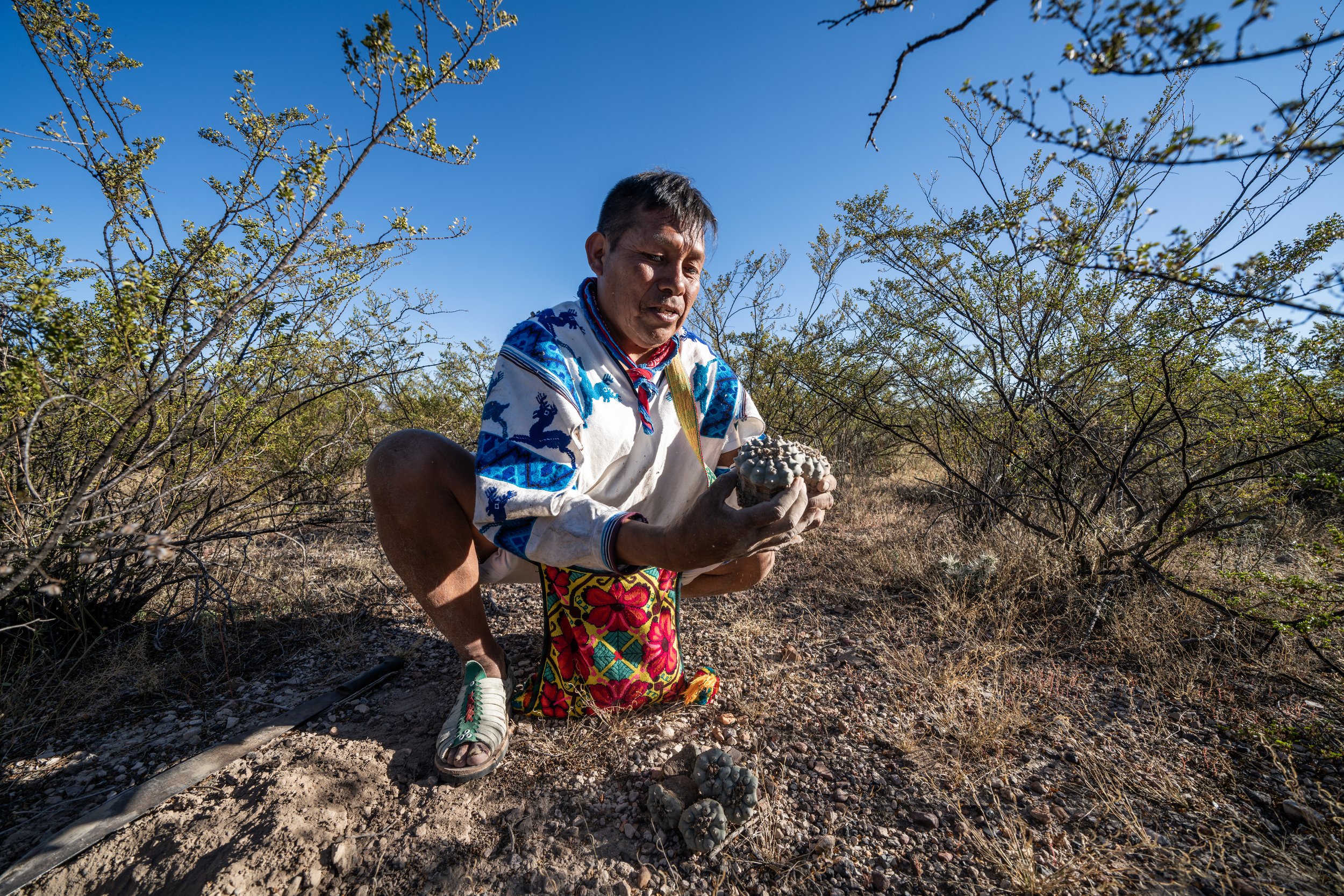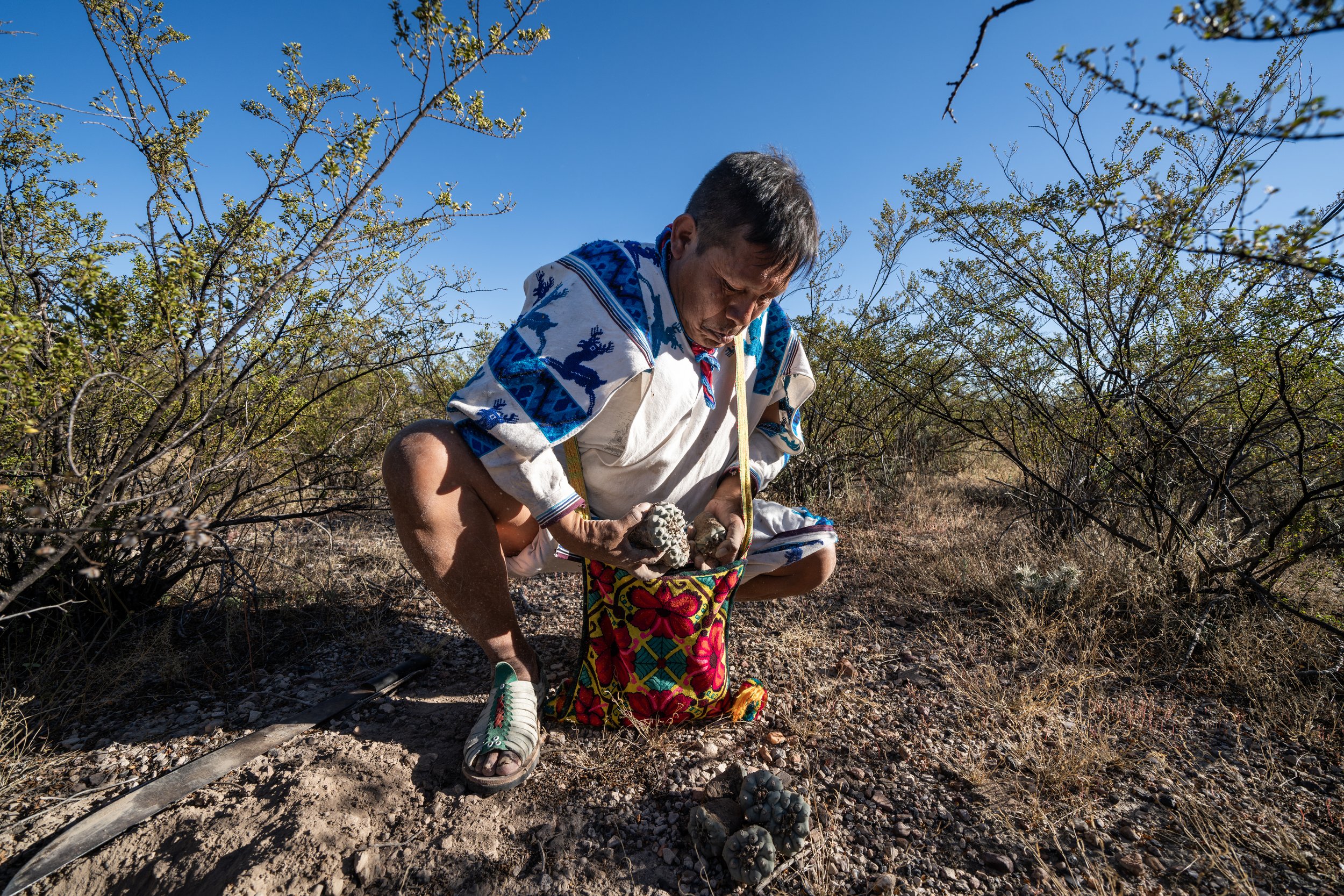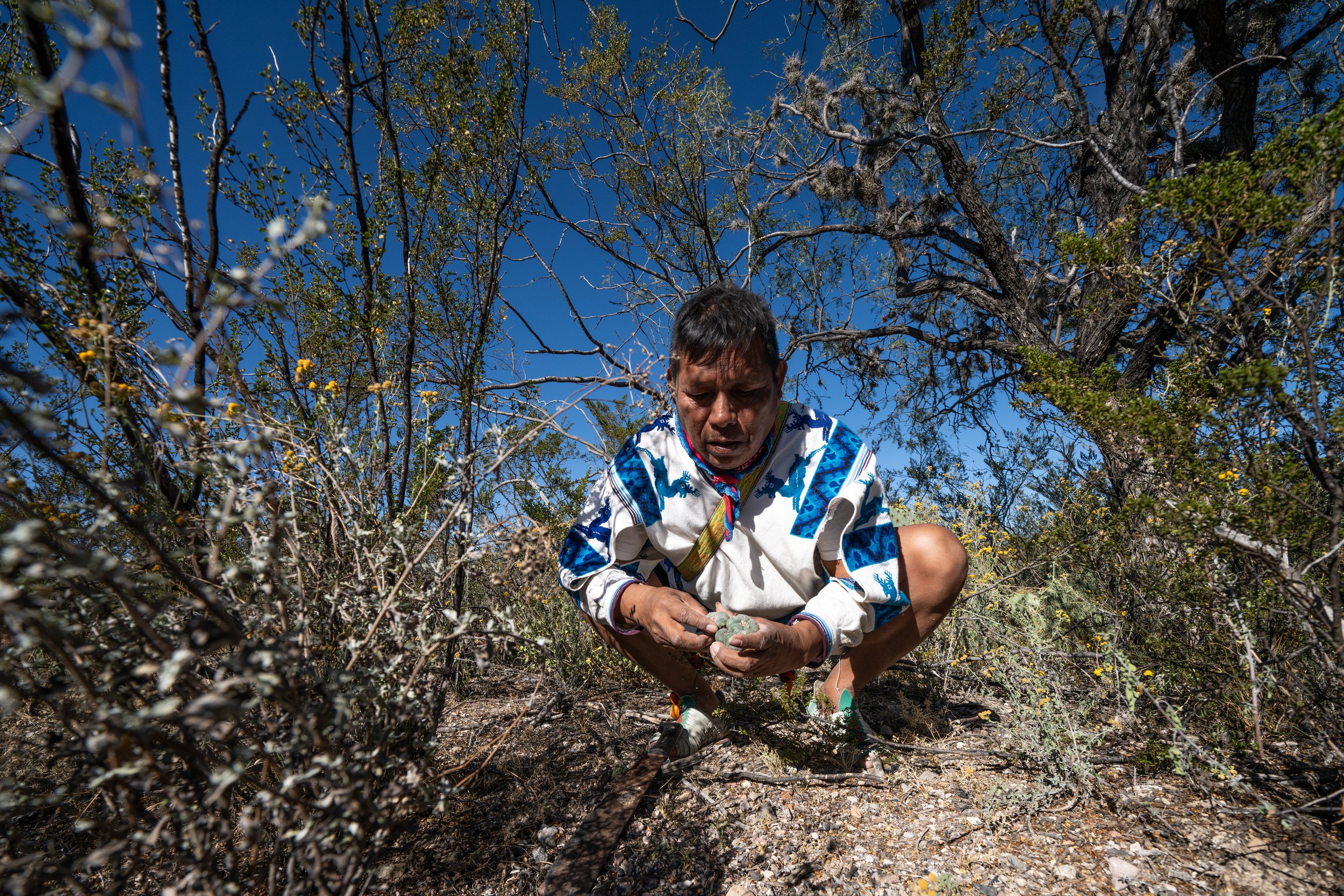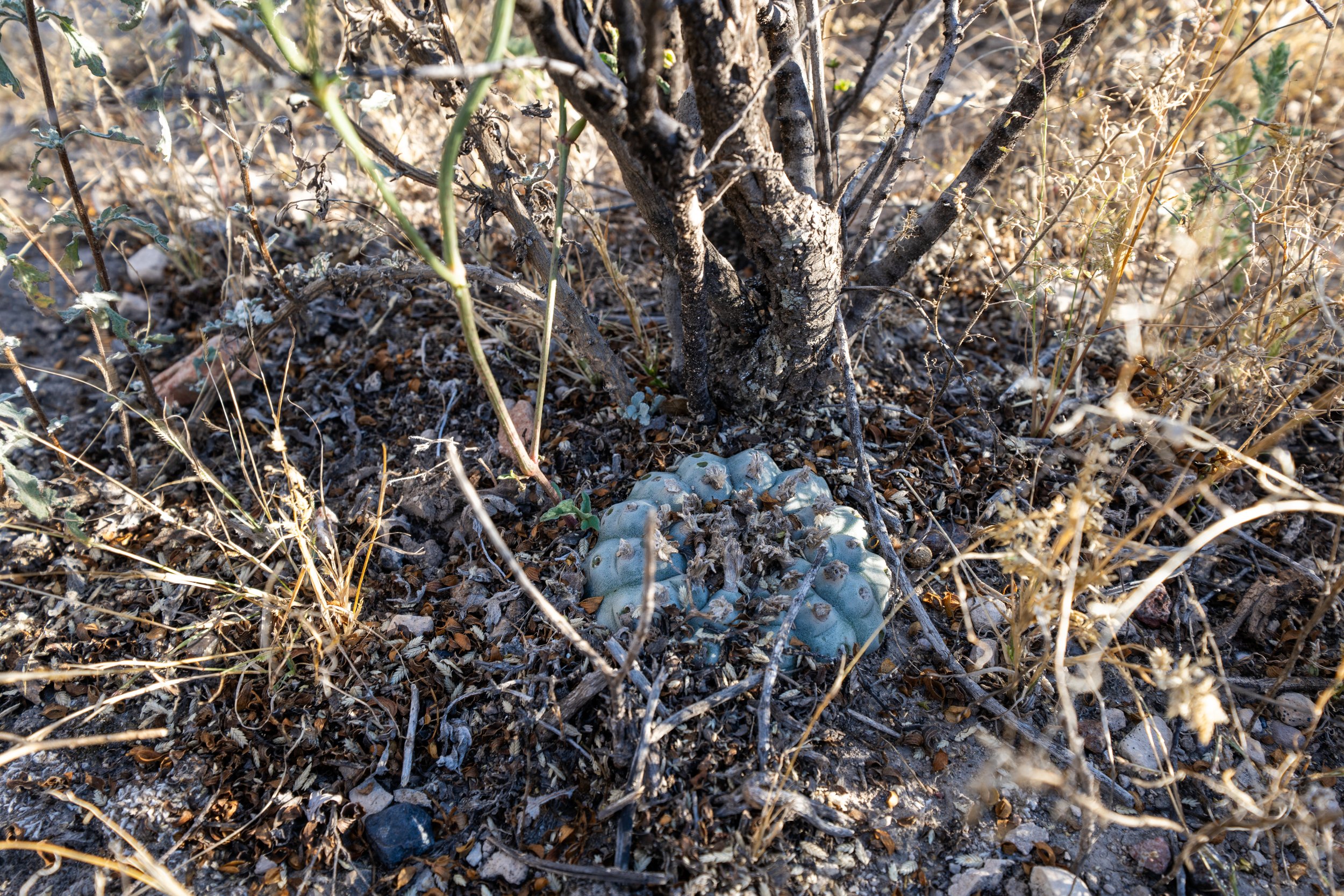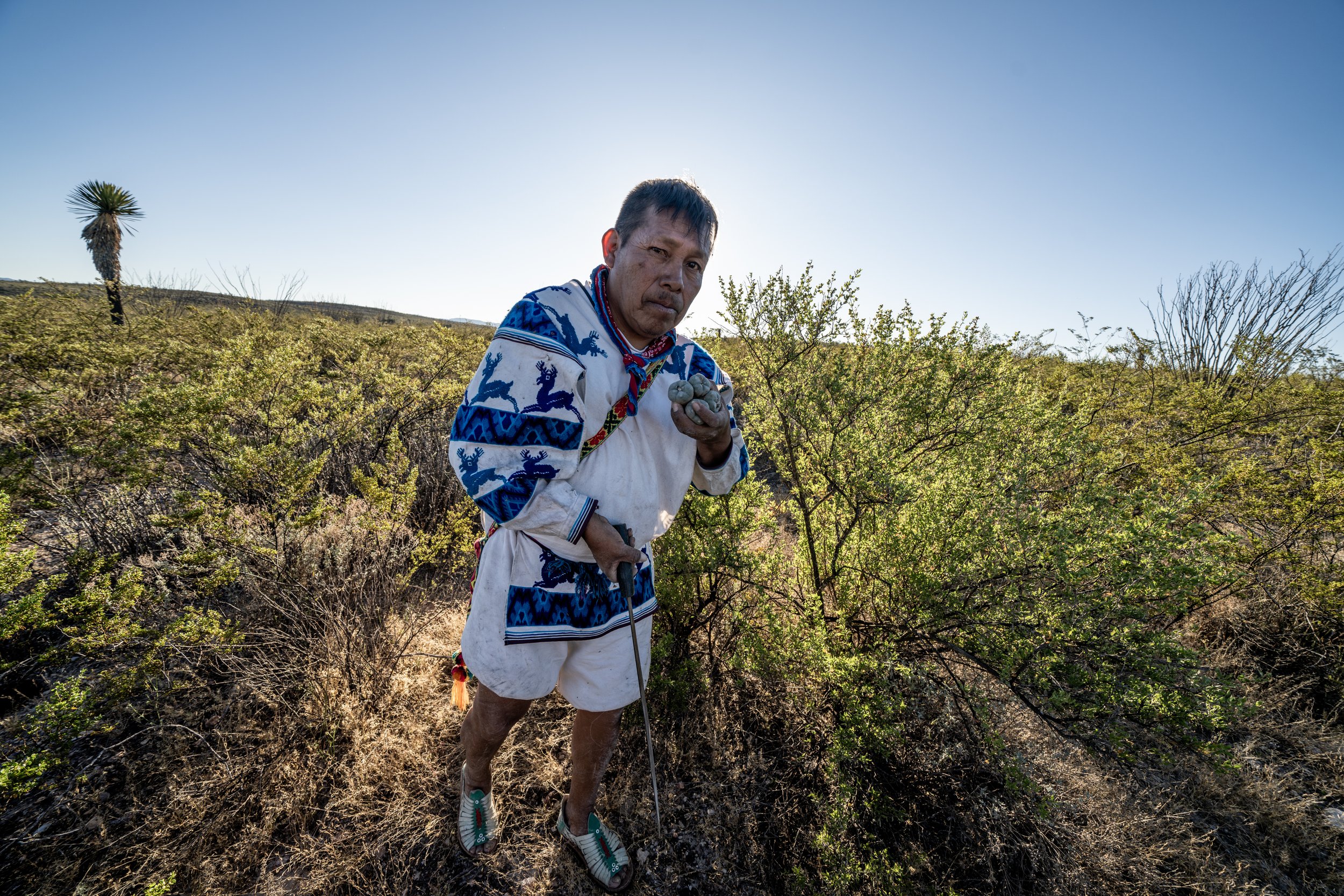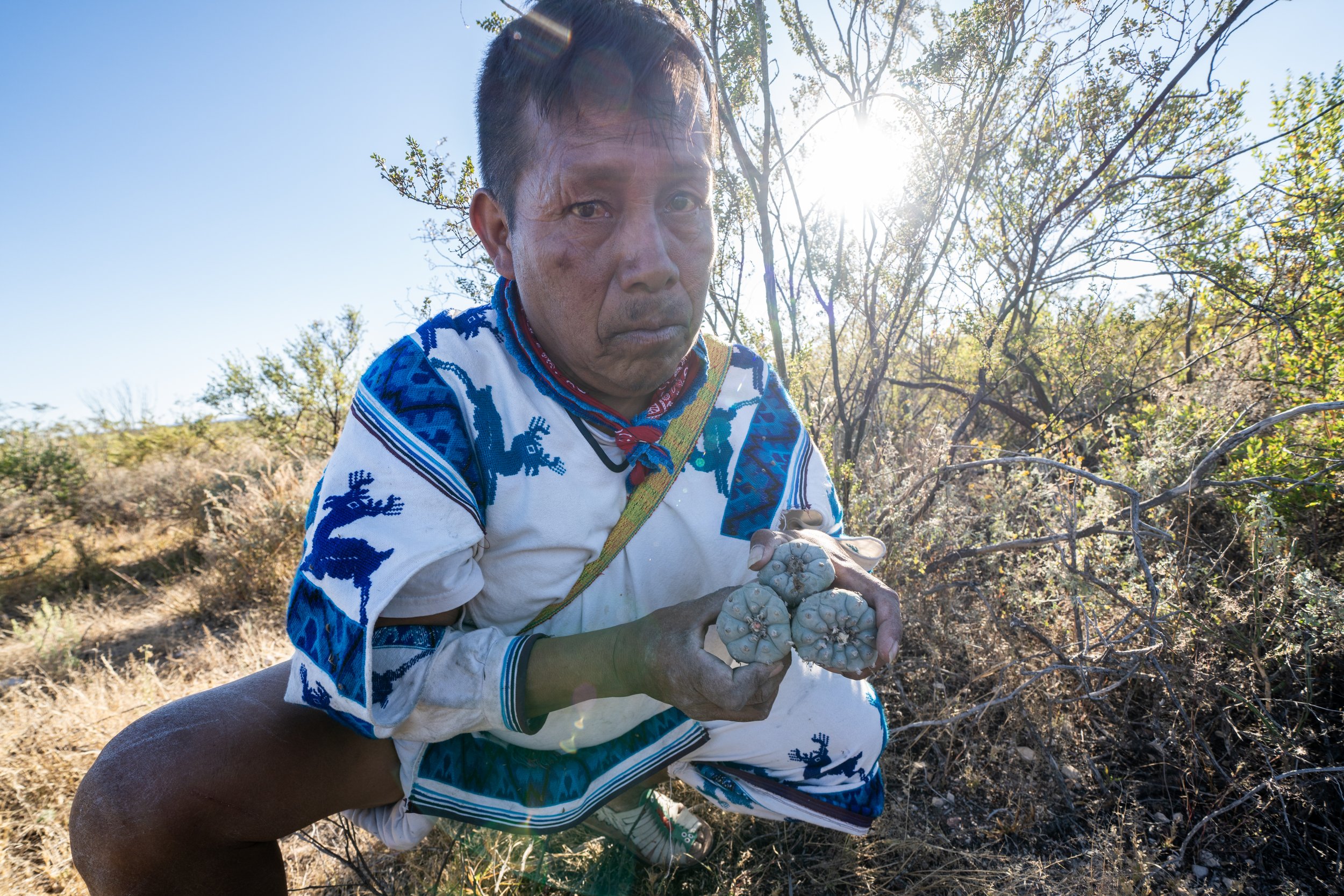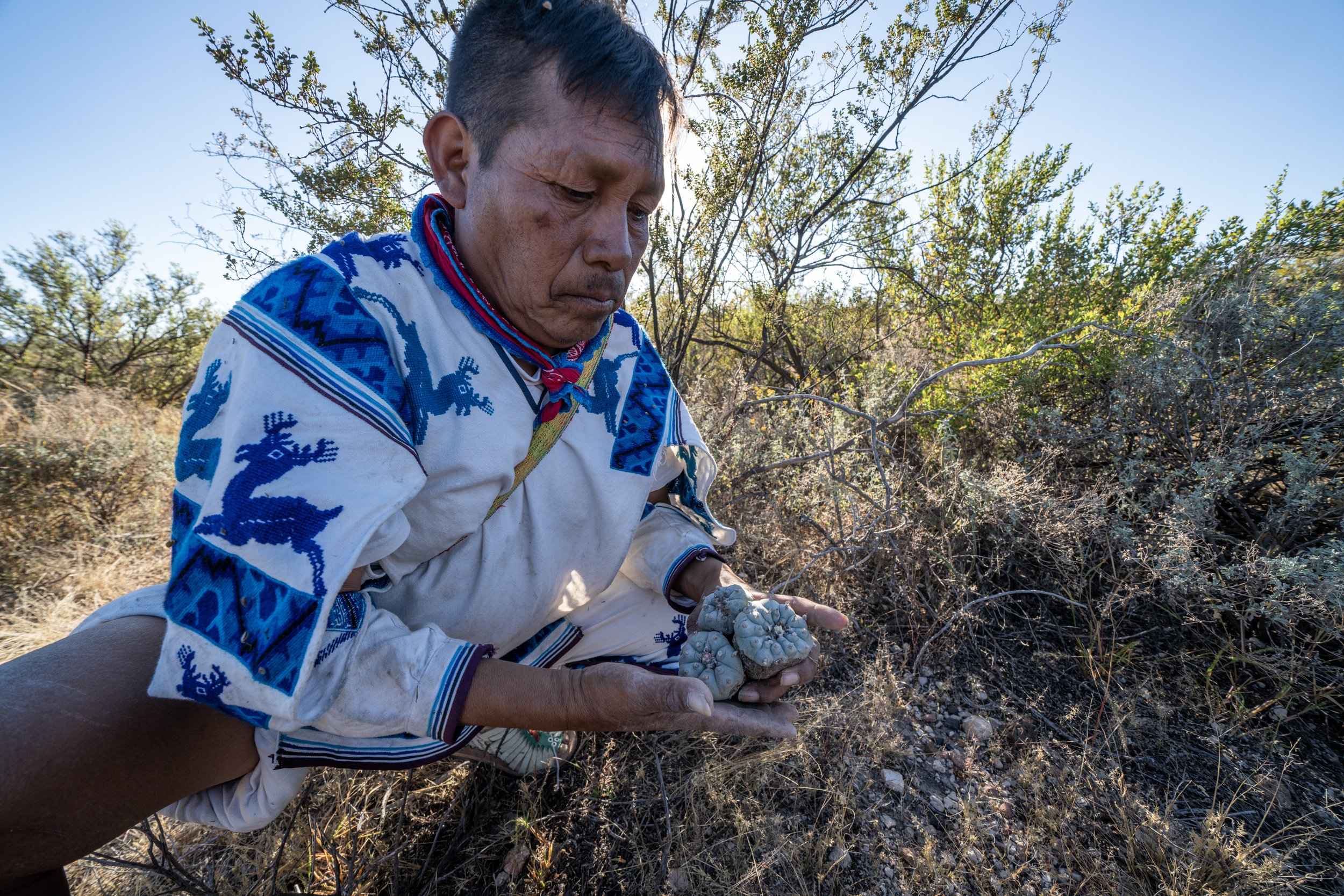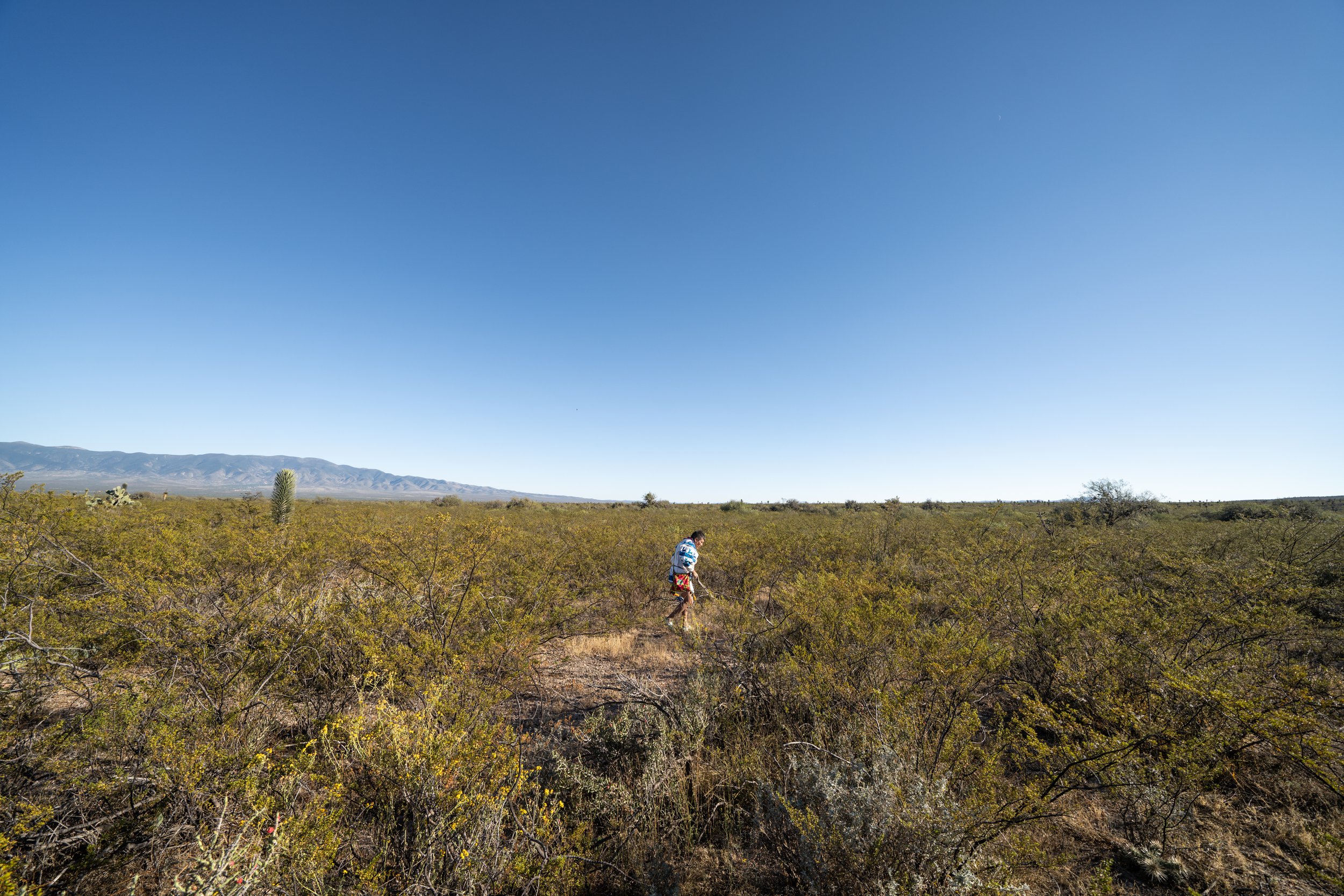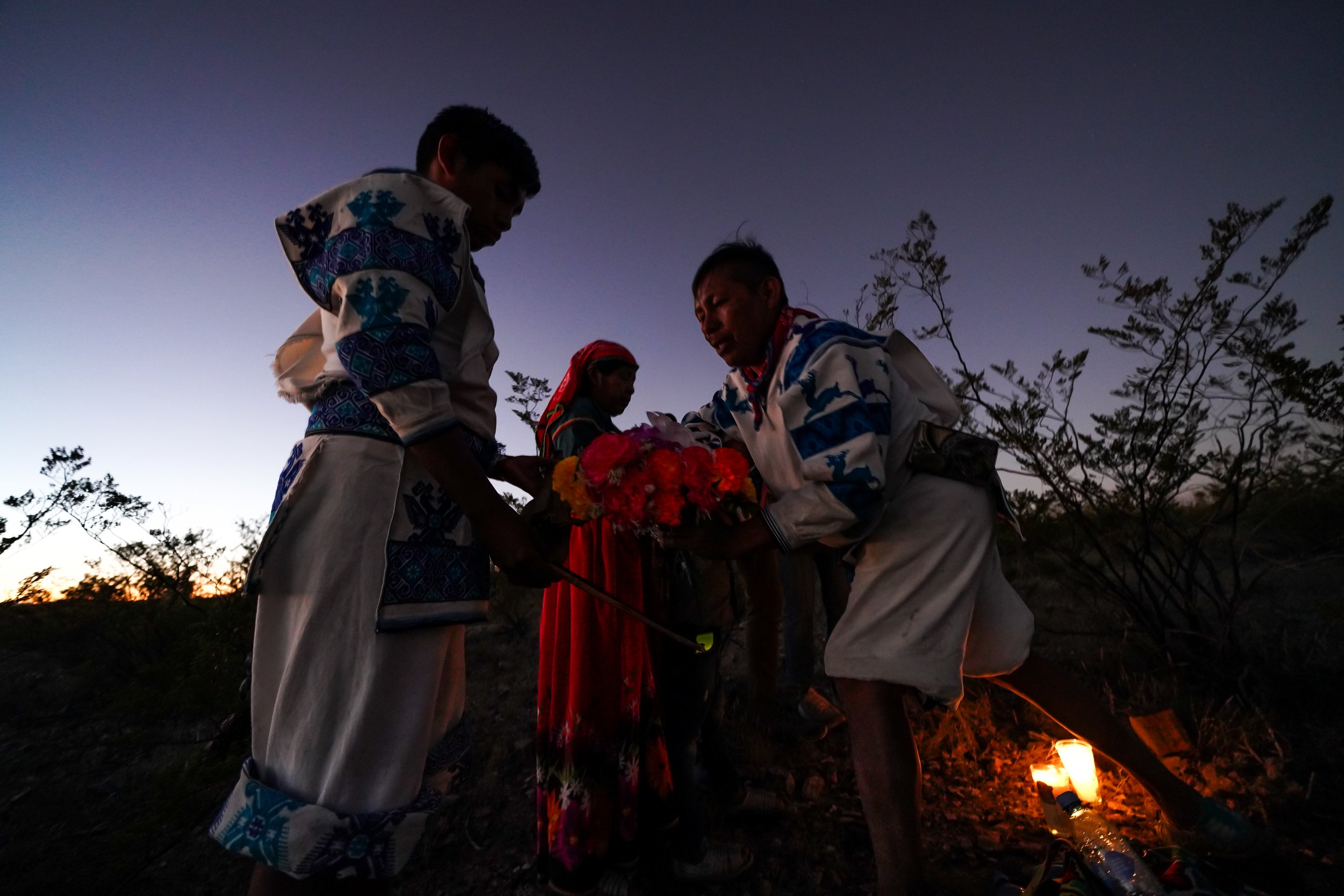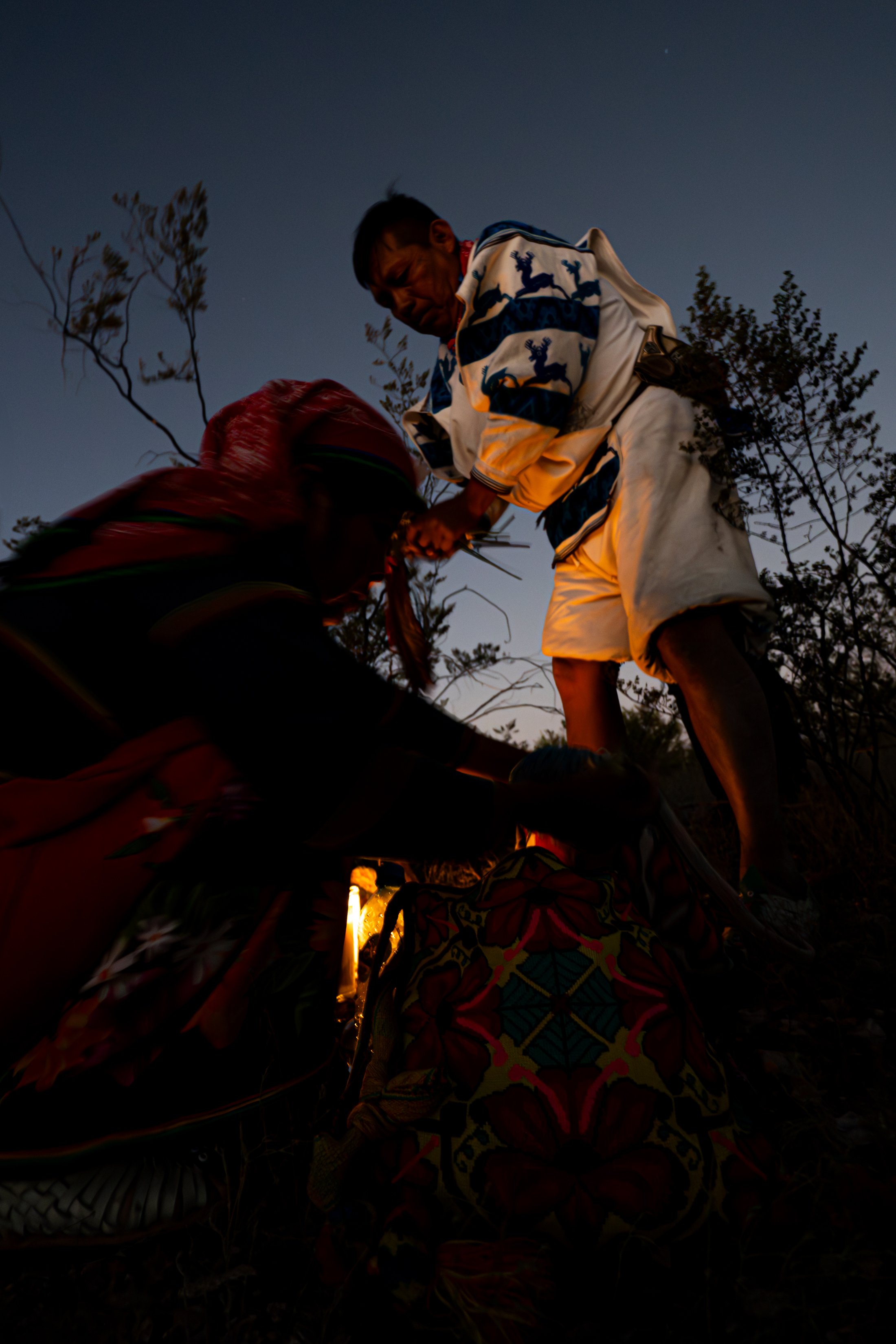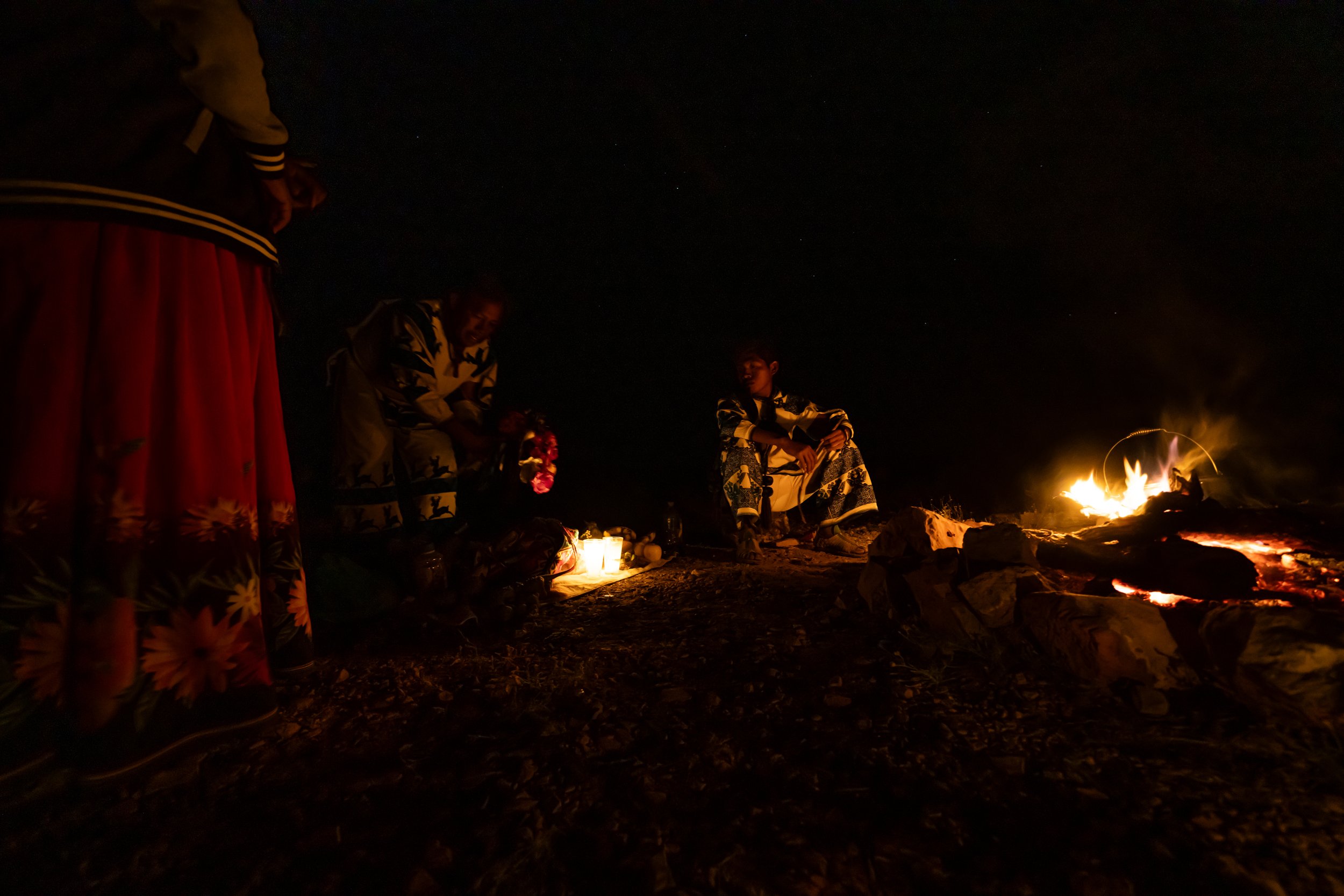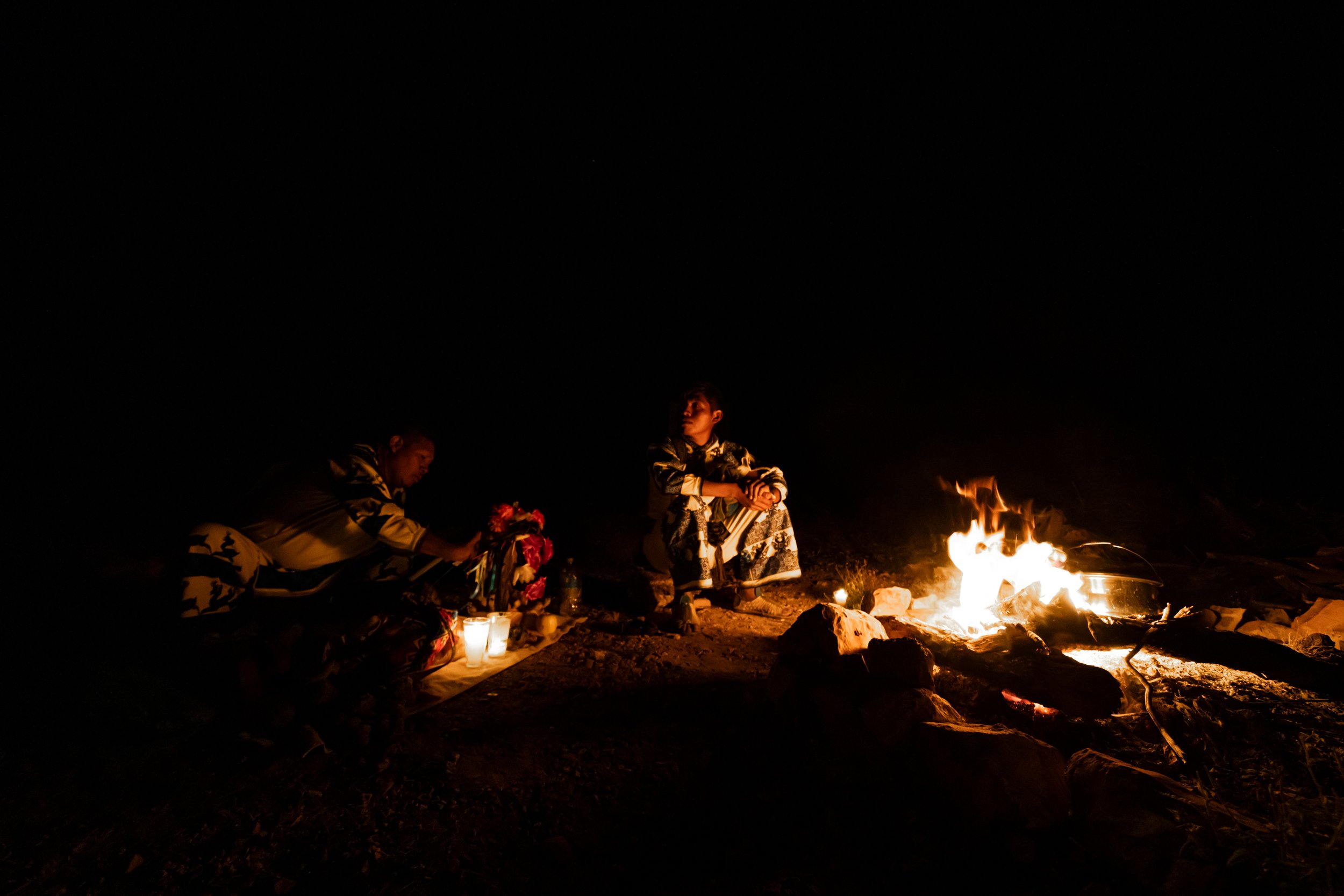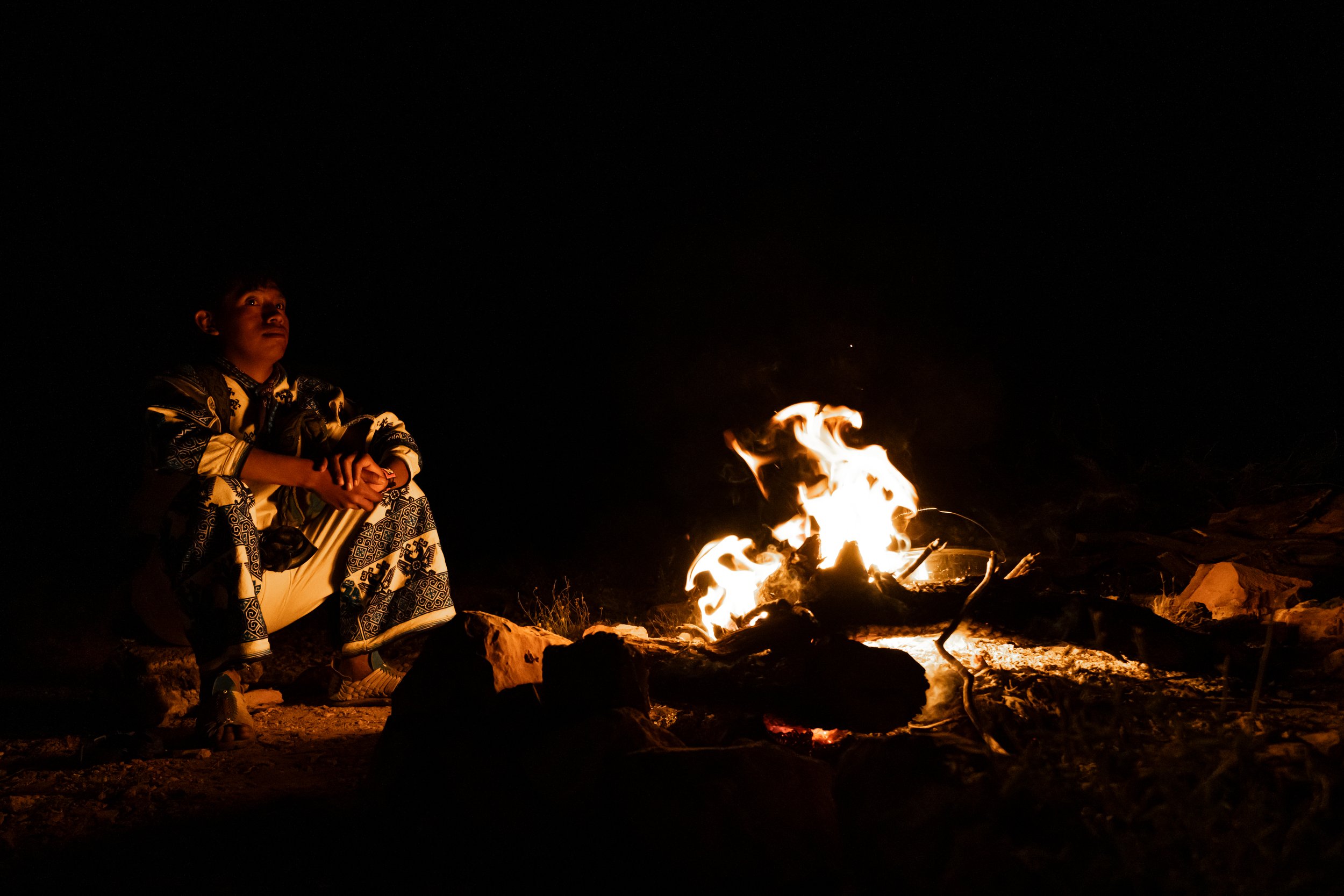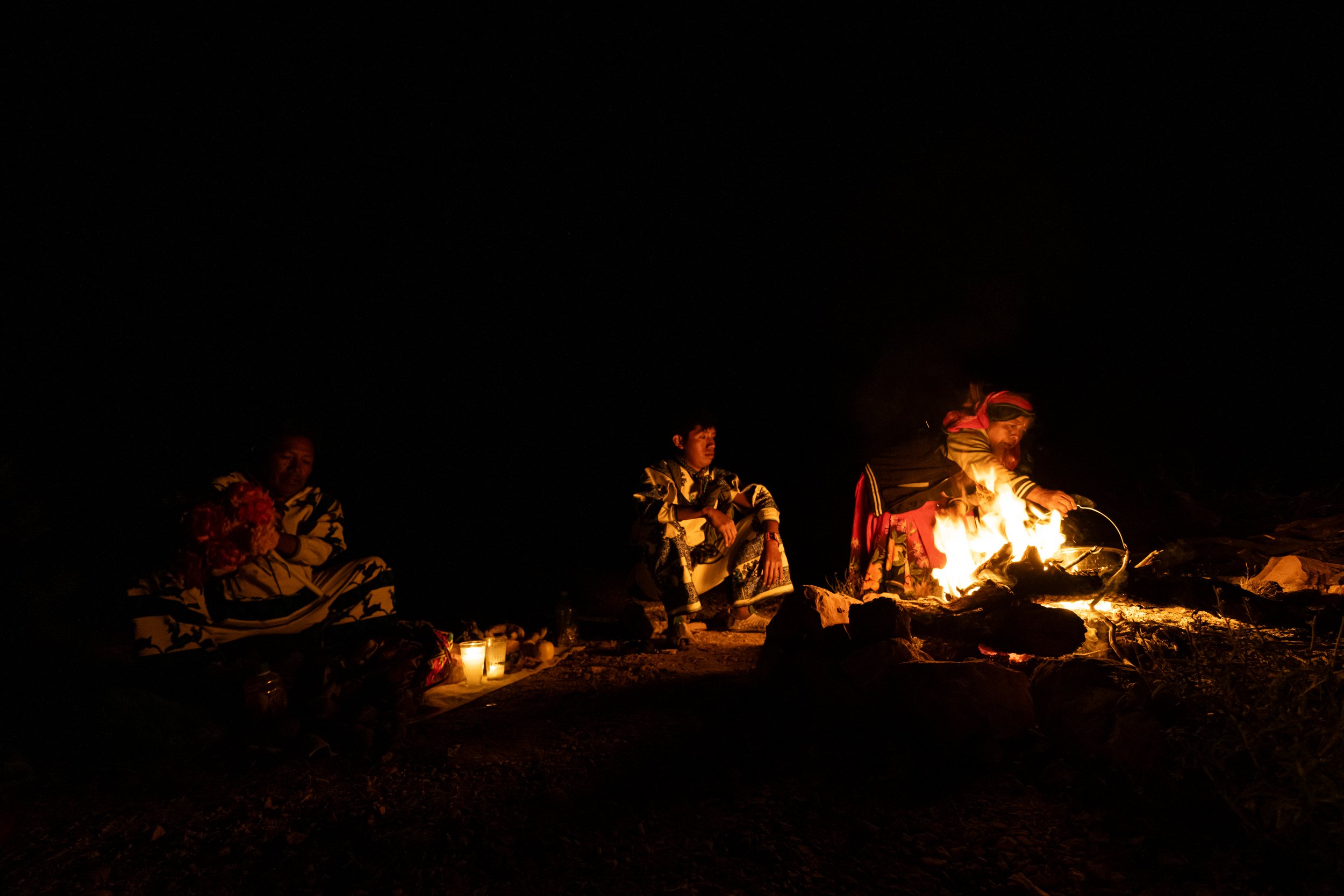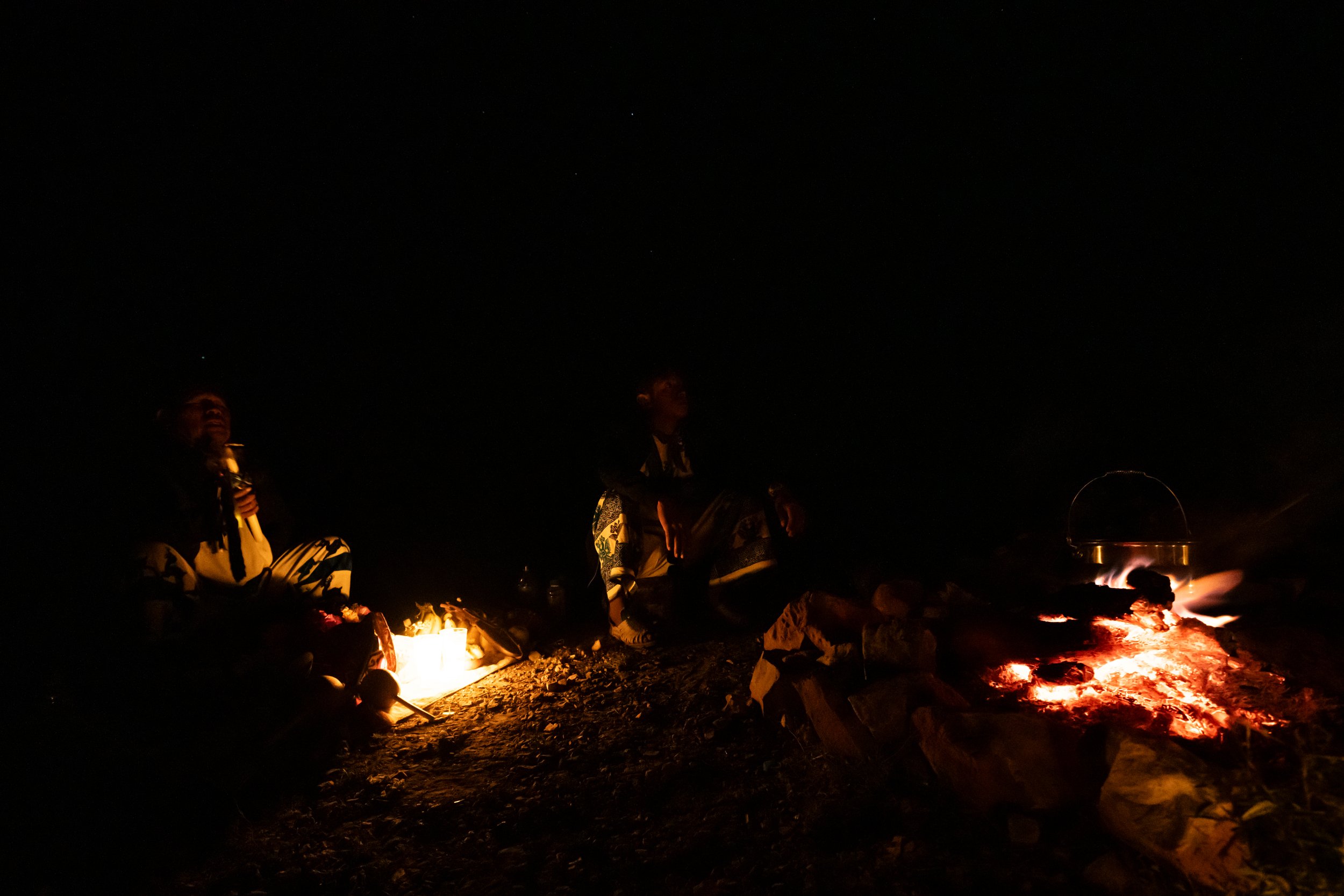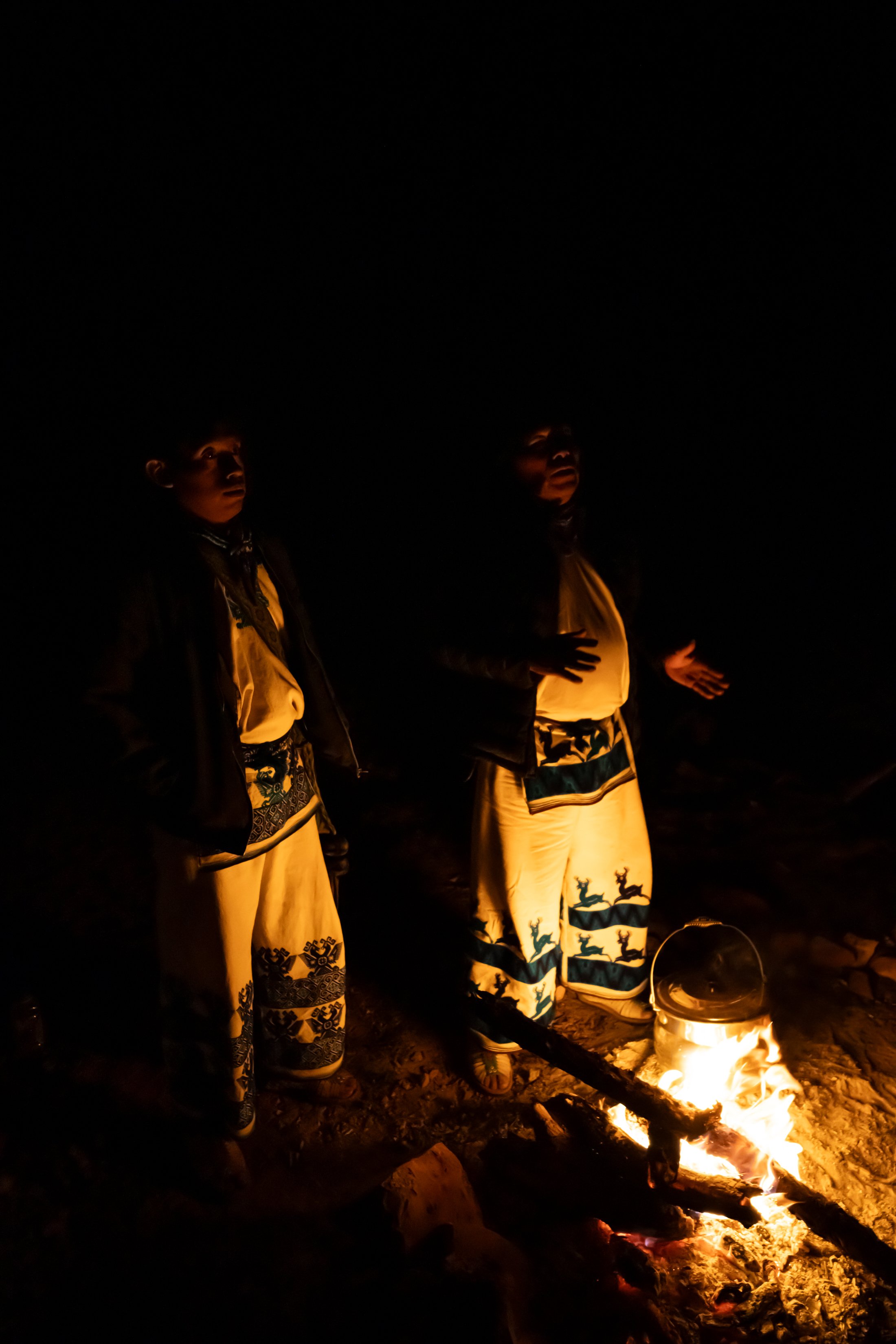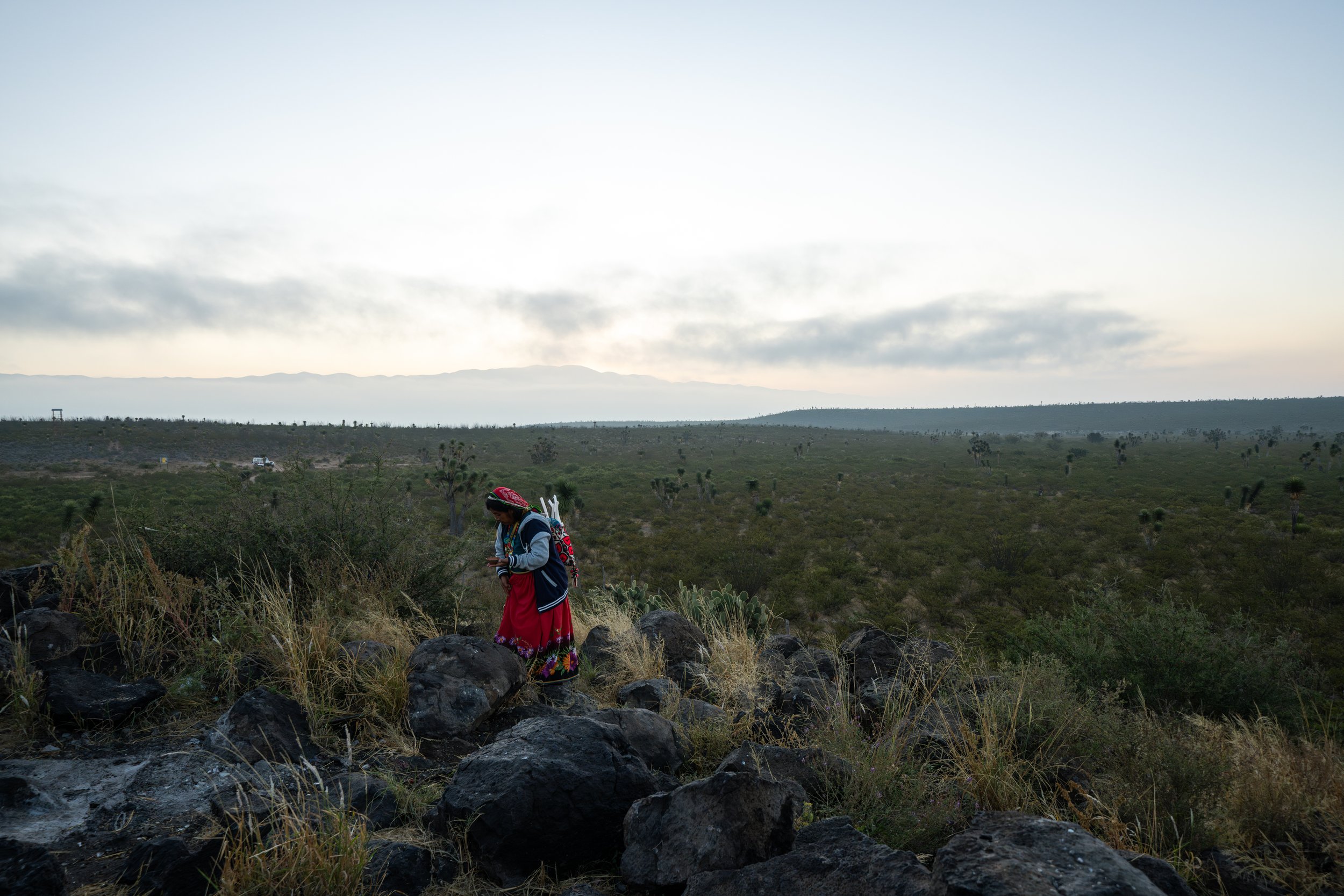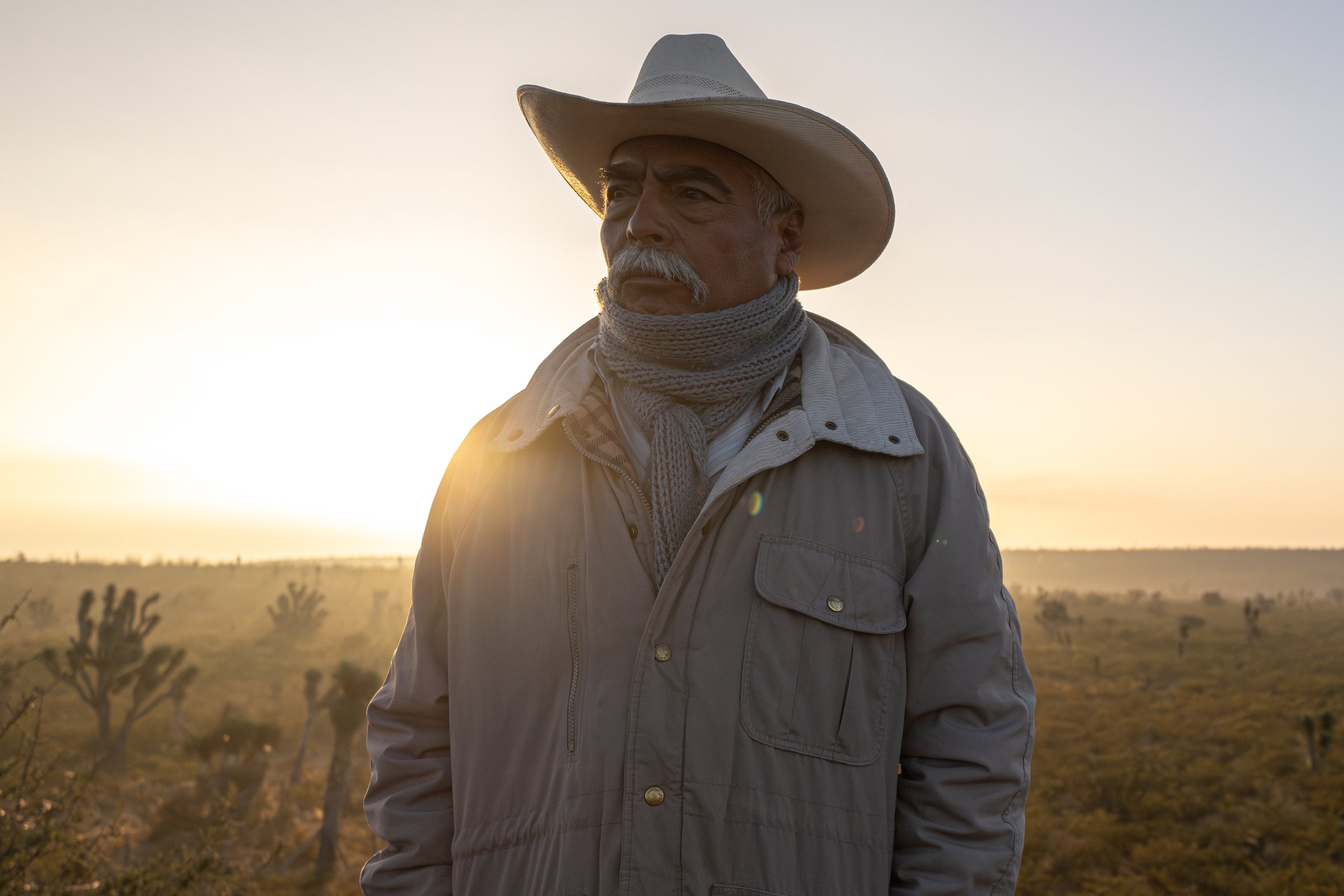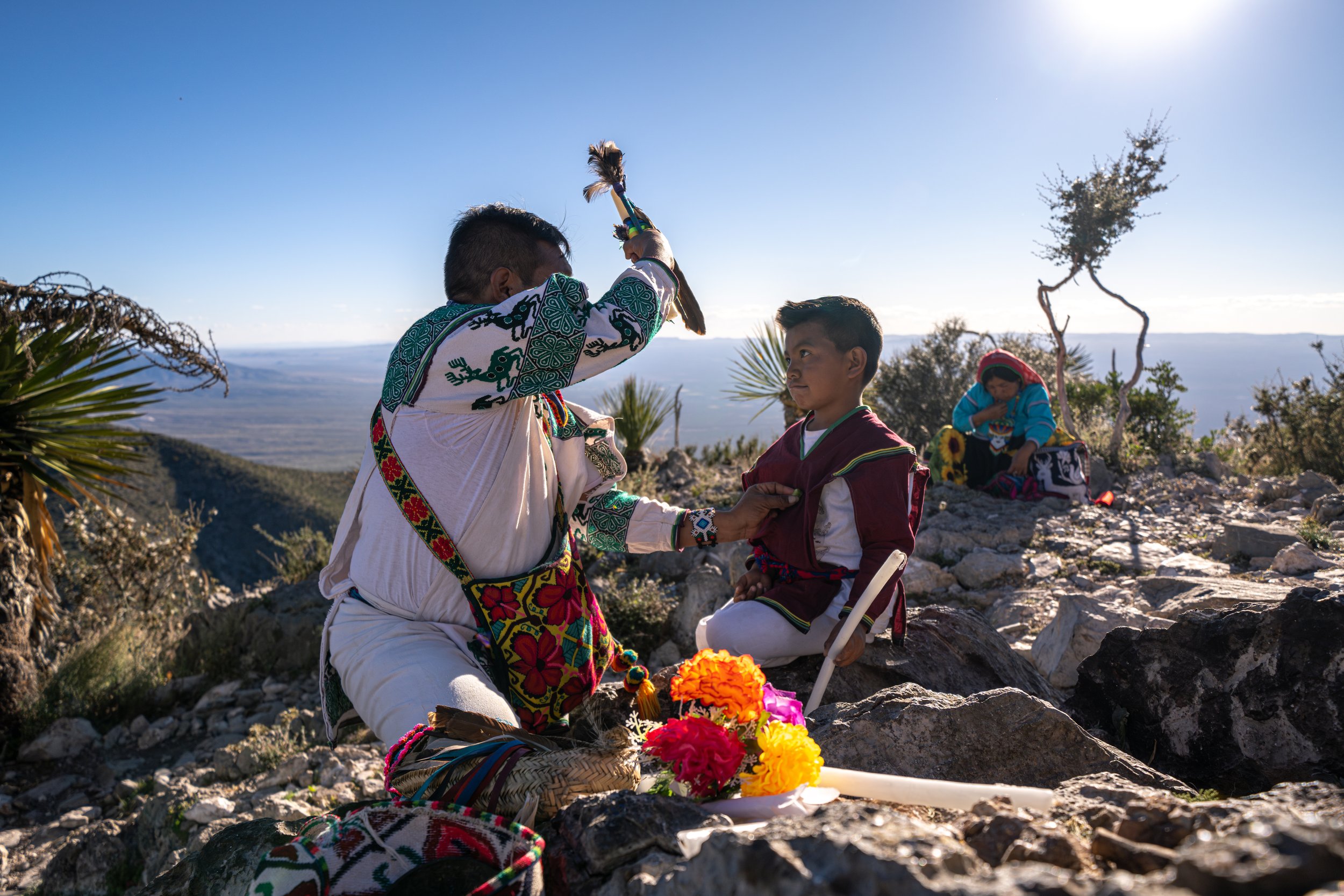CEREMONIA DE HIKURI EN WIRIKUTA
Traditional Wixarika peyote ceremonies are profound spiritual practices that connect participating families and community members with their ancestral heritage and the divine. These ceremonies typically involve long pilgrimages to sacred sites, such as Wirikuta in the San Luis Potosí desert, where peyote, known as hikuri in the Wixarika language, is carefully harvested. This harvesting is done with deep respect and a set of rituals to honor Tatewari, the Fire God, and other deities who guide and protect the Wixarika people.
The ceremonial process involves singing, chanting, and prayers led by a marakame, a shaman, to invoke visions and insight, creating an intense communal experience that strengthens bonds with their gods, nature, and one another.
Peyote holds immense spiritual and cultural significance to the Wixarika, representing both a medicine and a divine teacher. It is believed to facilitate communication with deities, provide clarity and healing, and guide moral and communal life. The Wixarika worldview sees all elements of nature—plants, animals, mountains, and rivers—as living beings imbued with spirit and wisdom.
Consuming peyote is an act of aligning oneself with this interconnected world, reaffirming their role as stewards of the land and their commitment to preserving sacred traditions and knowledge passed down through generations. It has been said that if peyote were to disappear so would the entire Wixarika culture.
Las ceremonias tradicionales de peyote de los Wixarika son prácticas espirituales profundas que conectan a los participantes con su herencia ancestral y lo divino. Estas ceremonias suelen implicar largas peregrinaciones a sitios sagrados, como Wirikuta en el desierto de San Luis Potosí, donde el hikuri se cosecha con sumo respeto y siguiendo rituales específicos para honrar a Tatewari, el Dios del Fuego, y a otras deidades que guían y protegen al pueblo Wixarika.
El proceso ceremonial incluye cantos, rezos y plegarias lideradas por un marakame para invocar visiones y obtener claridad, creando una experiencia comunitaria intensa que fortalece los lazos con sus dioses, la naturaleza y entre ellos mismos.
El hikuri tiene una importancia espiritual y cultural inmensa para los Wixarika, ya que es considerado tanto medicina como maestro divino. Se cree que facilita la comunicación con las deidades, brinda claridad y sanación, y guía la vida moral y comunitaria. La cosmovisión Wixarika ve a todos los elementos de la naturaleza—plantas, animales, montañas y ríos—como seres vivos imbuidos de espíritu y sabiduría.
Consumir peyote es un acto de alinearse con este mundo interconectado, reafirmando su papel como guardianes de la tierra y su compromiso con la preservación de las tradiciones y el conocimiento sagrado transmitido de generación en generación.
